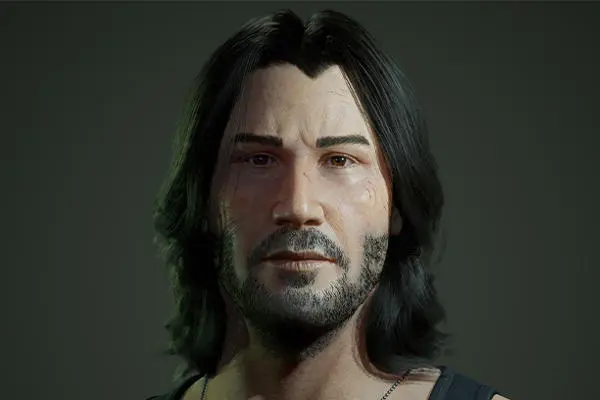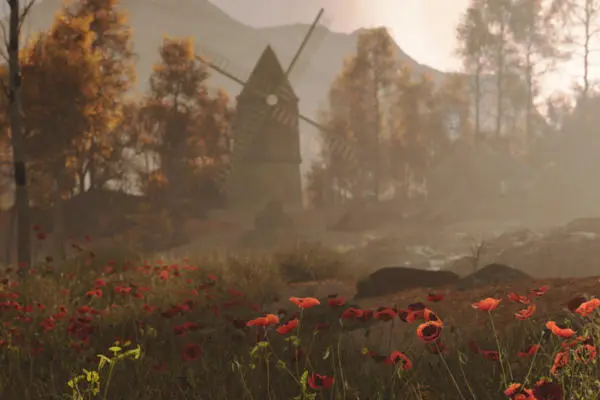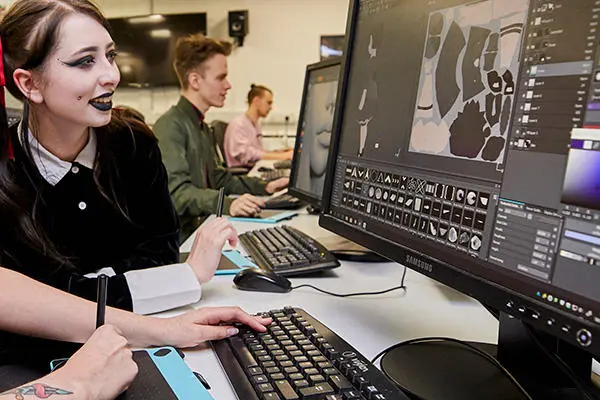
Why did you choose Solent?
I came from Singapore after completing my diploma at Ngee Ann Polytechnic. I was passionate about games and after comparing courses from many universities, I've found that Solent had the most practical degree that was specifically focused on portfolio building.
Tell us a little about your career so far
I got an environment artist offer from an outsourcing studio in Tokyo. I'm currently waiting for my work visa. I actually got this job during my final study year.
I aim to tap into Tokyo's vibrant gaming industry, attending events like TGS and meetups to establish contacts and showcase my skills. By staying up to date with industry trends and continuously improving my craft, I'm confident I can secure more opportunities that align with my passion and launch a successful career in this dynamic city.
You studied the Digital Arts Foundation Year before enrolling to the full undergraduate degree. How beneficial was it?
I could have taken a top-up year to obtain an engineer degree from my diploma, but I decided to study a foundation year to fully understand the new subject I was about to get into. This course enabled me to choose the right undergraduate degree as, throughout the foundation, I became much more interested in game art instead of coding. I would recommend anyone to do a foundation year if you are entering a new area of study. You’ll gain in-depth knowledge and practical skills in a specific field, so you can make the best choice for your future studies.
The BA (Hons) Computer Games (Art) at Solent is for you if...
…. you're passionate about gaming, want to unleash your creativity, practical skills and be part of an ever-changing digital creation industry. You’ll gain 2D/3D art, animation and level design skills, and build an impressive portfolio to kickstart a successful career.
What was the best thing about your course lecturers?
The best thing about my course lecturers was their exceptional support throughout my studies. They were not only highly experienced professionals in the gaming industry, but also approachable and invested in our success. Their extensive connections allowed us to gain valuable industry insights, networking opportunities, and even work on real-world projects from their companies or teams. Their continuous guidance and mentorship played a crucial role in shaping our skills and preparing us for a successful career in game art.
What about the facilities?
The facilities were outstanding. Equipped with most up-to-date technology and software, we had complete access to the educational licensed tool packages used in the current gaming industry. Additionally, the tech support staff ensured that everything ran smoothly, making our experience truly exceptional.


The study of photogrammetry truly amazed me and revolutionised my approach to creating 3D assets.
Do you feel that your studies helped you prepare for a career in the industry?
Absolutely, my studies in game art significantly prepared me for a career in the industry. One aspect that stood out was the way the lecturers encouraged us to research and find our best study area. This autonomy allowed us to focus on what we were truly passionate about, be it 2D art, 3D modelling, animation, or characters. By exploring our interests, we honed our skills in our chosen field, making us more competitive and well-prepared for the diverse roles in the gaming industry. This personalised approach, combined with hands-on projects and exposure to industry practices, equipped us with the practical knowledge and confidence needed to thrive in our careers as game artists.
Throughout my study, I actively connected with industry professionals, alumni, and fellow students on LinkedIn, which has proven to be instrumental in my career growth and opportunities post-graduation. The University's emphasis on practical learning and industry engagement empowered me to build meaningful connections that continue to enrich my professional journey.
What did you learn or study which really made you go wow, or think ‘this is cool’?
The study of photogrammetry truly amazed me and revolutionised my approach to creating 3D assets. Converting real-world photographs into intricate and accurate 3D models was mind-blowing. This technique bridged the gap between reality and imagination, giving my game art a whole new dimension.
Can you talk a bit about any opportunities you had to get practical experience or entering competitions or awards?
Certainly! One incredible opportunity I had to gain practical experience was entering the Grads in Games game art competition. Participating in this competition allowed me to showcase my skills and creativity on a larger platform. As a result, I was able to produce a killer portfolio that highlighted my talents to professionals in the EU.
What made this experience even more rewarding was when I got interviewed by an industry-leading platform, 80 Level, which provided me with valuable exposure and recognition within the gaming industry. To my amazement, my work was recognized as a top finalist among EU universities, which further boosted my confidence and opened doors for exciting career prospects.
Overall, this competition was a game-changer for me, offering practical experience, industry exposure, and the chance to network with professionals in the field. It not only enriched my portfolio but also set me on the path to a successful career in game art.
What did you like best about being a Solent student?
What I liked best was the strong industry connections the University had. Through various workshops, guest lectures, and networking events, we had excellent opportunities to interact with professionals from the industry and showcase our portfolio. This exposure enriched my learning experience and provided valuable insights into the real-world aspects of the game industry. The best thing about student life here was the blend of academic excellence and practical experience, preparing us thoroughly for future success.
The University also provided me with tremendous help and support when I needed it. They offered comprehensive mental health support during my stressful times, ensuring that I had access to counselling services and resources to help me cope with the challenges of study and life.
What tips would you give to someone wanting a career in your industry?
- Build a strong portfolio: this is the most important step of getting into the industry. Everything you do should contribute to this goal because this is the best way to show your ability in this industry.
- Embrace challenges: be open to integrating real-world tasks like company interviews or art tests into your coursework to develop practical skills that directly impact your career prospects.
- Seek mentorship: establish relationships with experienced mentors who can guide you, provide feedback, and offer valuable industry advice.
- Utilise the University’s resources: take advantage of career services, industry connections, and support for mental well-being.
- Personal projects matter: work on personal projects outside of course terms to push your limits and creativity beyond academic requirements.
- Stay passionate: maintain your passion for gaming and art - genuine enthusiasm for your work will shine through in your creations and interactions within the industry.














